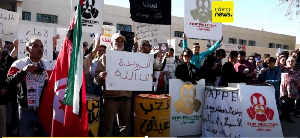Chiefs have been urged to take centre stage in the anti-corruption fight to save the nation’s resources from being diverted into private pockets.
Togbe Afede XIV, President of the National House of Chiefs (NHC), said it should not be lost on anybody that corruption “discourages innovation and discourages hard work”, adding that everyone is needed to get actively involved in the fight to make it a disincentive.
Addressing the second general meeting of the chiefs this year in Kumasi, Togbe Afede asked that the chiefs lead by example in helping to change the attitudes of citizens.
“Let us remember, this is our time to make the difference, and we cannot do this unless we speak against wrongdoing,” he said.
He drew attention to the correlation between discipline and development, and said the most disciplined societies were the most developed.
Togbe Afede reminded his colleague chiefs to do more to bring development to their people.
He also applauded the government for its bold development vision to have a country beyond aid. He said government projects such as the one district one factory, free senior high school policy and the Ghana Card, were good initiatives that can promote development in the country.
Togbe Afede rallied the chiefs to eschew selfishness and work together to modernize and transform the chieftaincy institution.
The goal should be an institution that “is relevant to the needs of our people, an institution whose work meets the expectations and aspirations of our people”, he added.
Professor Kenneth Agyemang Attafuah, Director of National Identification Authority (NIA), announced that 2,500 mobile registration officers were going to be deployed for registration of citizens for the Ghana Card.
The registration, he said, would be done region by region – starting from the Greater Accra and ending in the Upper West Region.
More than 5,000 people would also be assigned to visit every community to help everybody to understand the importance of acquiring the national identification card.
General News of Saturday, 30 September 2017
Source: ghananewsagency.org













